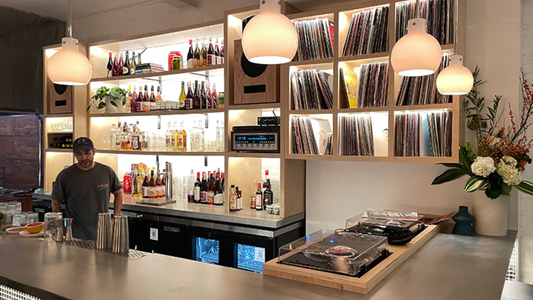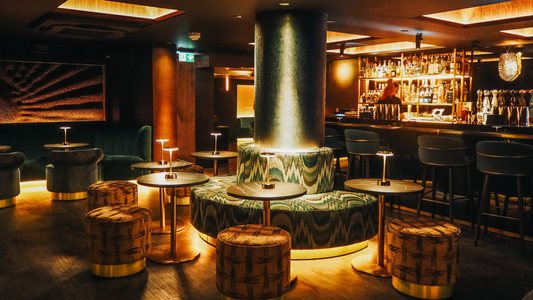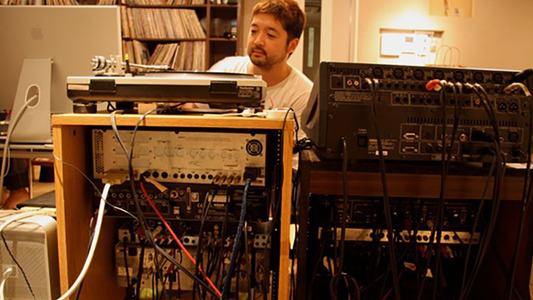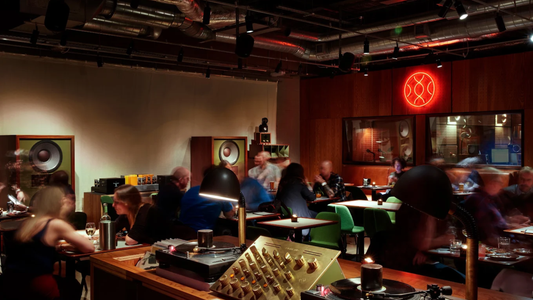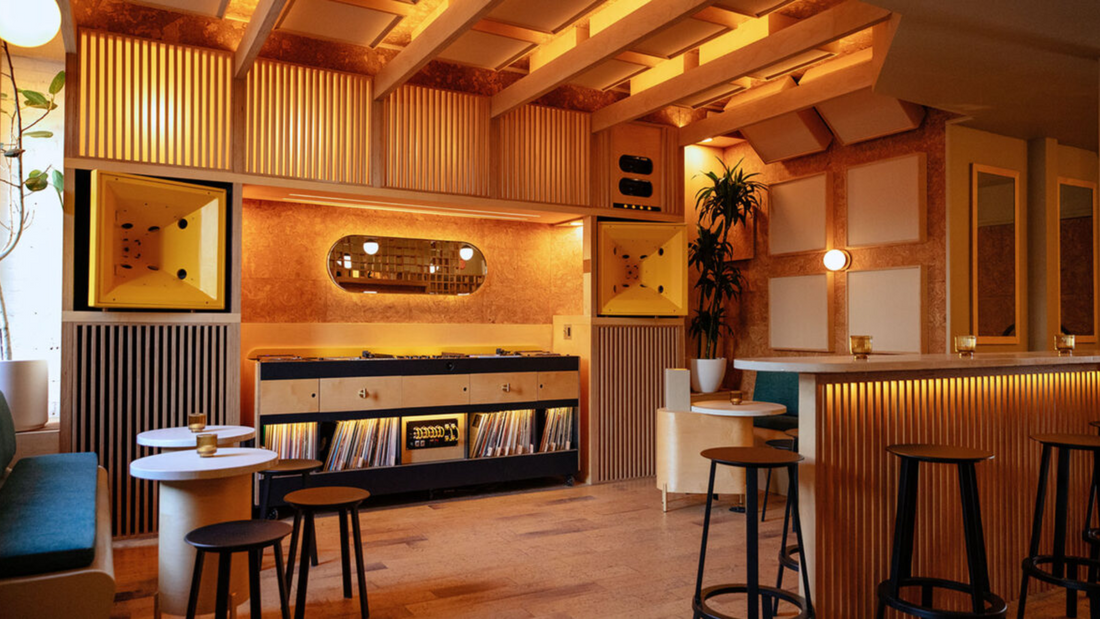
Los Angeles: The City of Endless Echo
By Rafi Mercer
Los Angeles is a city that listens in layers. It sprawls endlessly, a vastness of light and boulevards, freeways and districts stitched together by rhythm as much as geography. For music, it has always been a place of extremes: the dream factory where hits are minted, the experimental edge where genres collide, the back-room sanctuaries where records spin for small gatherings long after the lights of the studios dim. To walk through LA is to hear competing frequencies, spectacle and intimacy side by side. Yet within this sprawling chaos, the listening bar emerges as a reminder that silence matters here too, that fidelity can cut through glare, that intimacy can still be found in a city of screens.
I remember those Virgin years when records arrived by the pallet — LA always loomed as a source, a place where styles were not just born but manufactured, distributed, mythologised. Capitol Records, Sunset Sound, the names carry an aura, temples of precision and commerce. The mythology of Los Angeles is inseparable from its studios: crooners recorded in vaulted rooms, Laurel Canyon voices captured in hushed takes, entire orchestras layered until pop became cinema. And yet, for every story of glossy production, there are countless moments when sound in Los Angeles slipped under the radar, played for friends, left raw, imperfect, unrepeatable. The city contains both: the industry’s shine and the underground’s grit.
What fascinates me about its listening bars is how they draw these opposites together. Walk into one in Highland Park or Silver Lake and you’ll see the bones of California ease — wood, plants, light filtered in soft hues — but you’ll hear something else: Coltrane pressing against the air, the breath in between piano chords, the kind of detail that only comes when systems are tuned like instruments. Los Angeles bars take the Japanese kissa model — silence, ritual, fidelity — and infuse it with West Coast looseness. A negroni in hand, an ambient record sliding into hip-hop, conversations dimmed but not erased. The discipline is still there, but softened, less rigid, more Californian.
Vinyl has always had a second life in Los Angeles. Amoeba became legend not just for its size but because it felt like the city distilled into shelves — pop next to avant-garde, soul beside electronica. Smaller independents thrived in Echo Park and East Hollywood, places where DJs dug for rare pressings, where Japanese imports of Blue Note titles sat in crates waiting for someone to notice the OBI strip and realise fidelity travelled across oceans. It’s no surprise the resurgence of vinyl found fertile ground here. The record is cinematic by nature, a complete narrative. And Los Angeles is a city that understands narrative better than most.
There is also geography. In New York, sound is vertical, compressed, squeezed into basements. In Berlin, it is stripped back, minimal. In Los Angeles, it is horizontal, panoramic, spread wide like the city itself. To sit in a listening bar here is to feel that sprawl drawn into focus. Outside: the freeways, the billboards, the industry. Inside: a horn line lingering in silence, a needle tracing grooves. LA teaches you that within excess lies the possibility of intimacy, that fidelity can reclaim space.
A night might drift across genres, moving with the looseness of the city itself. Coltrane into Madlib, Joni Mitchell into Flying Lotus, ambient textures that echo desert horizons. The bars are not about spectacle but presence, not about hits but about atmosphere. And that atmosphere lingers when you leave. Step out onto a quiet street and you hear the palm trees shifting, the hum of traffic, the city glowing under artificial starlight. Your ear has been recalibrated, tuned differently, alive to detail.
Los Angeles is a city of echoes, but in its listening bars you hear more than reverberation. You hear intimacy rediscovered, silence restored, fidelity valued. In the vastness of the city, these small rooms remind us that music matters not only as product but as presence.
Rafi Mercer writes about the spaces where music matters. For more stories from Tracks & Tales, subscribe, or click here to read more.
